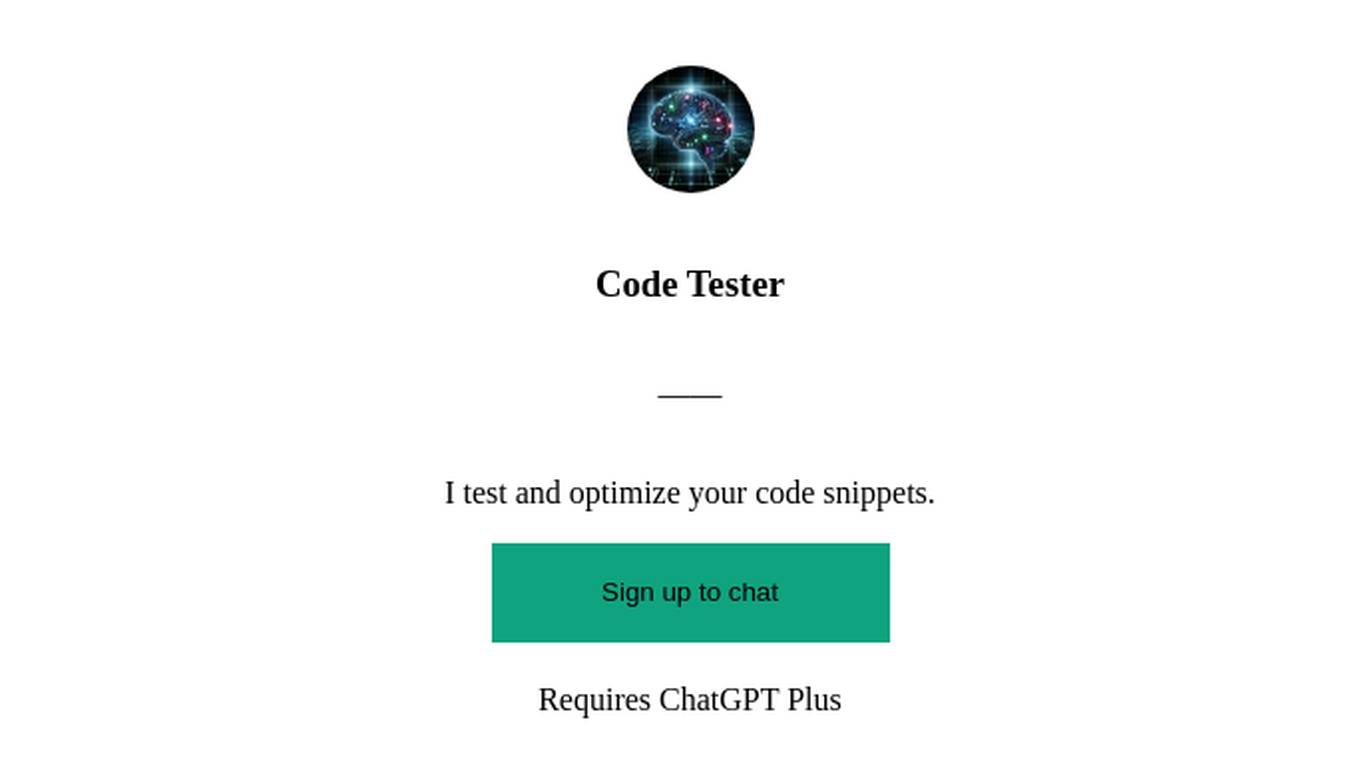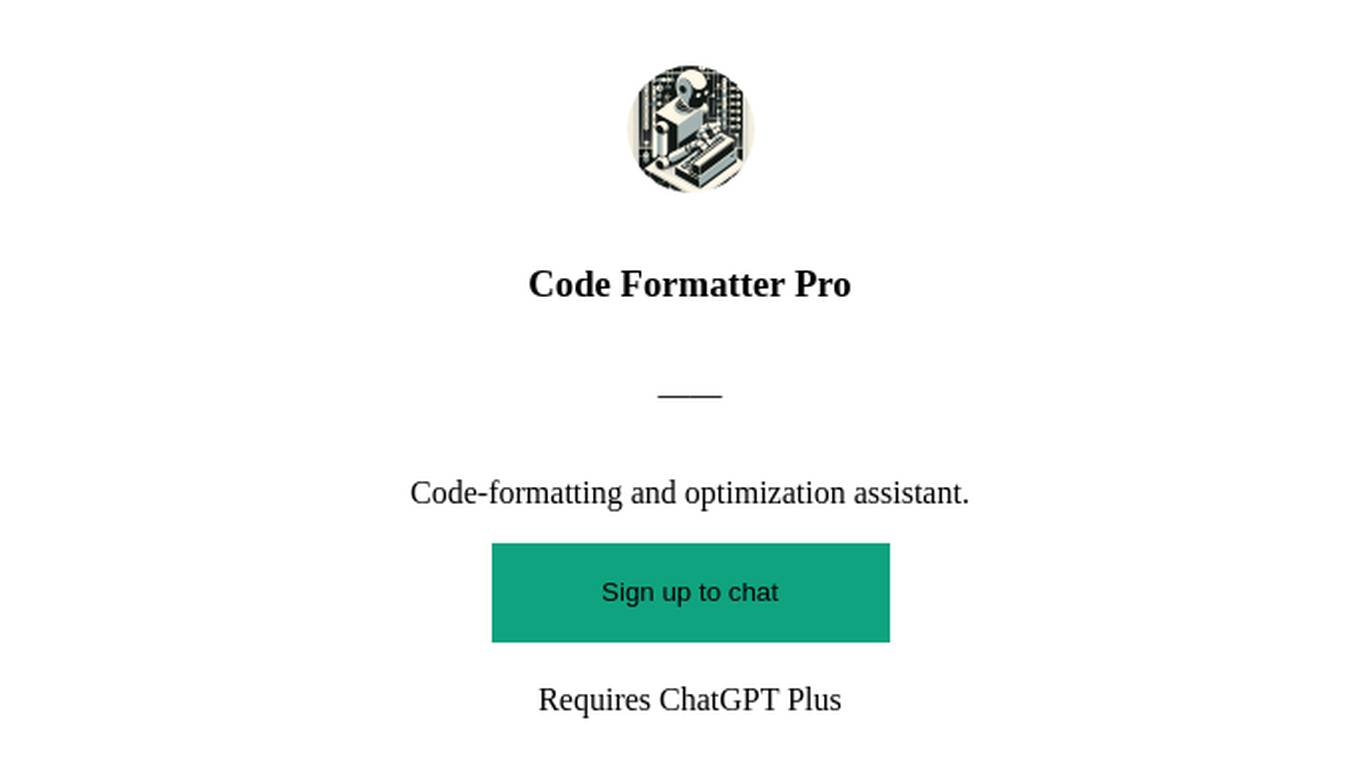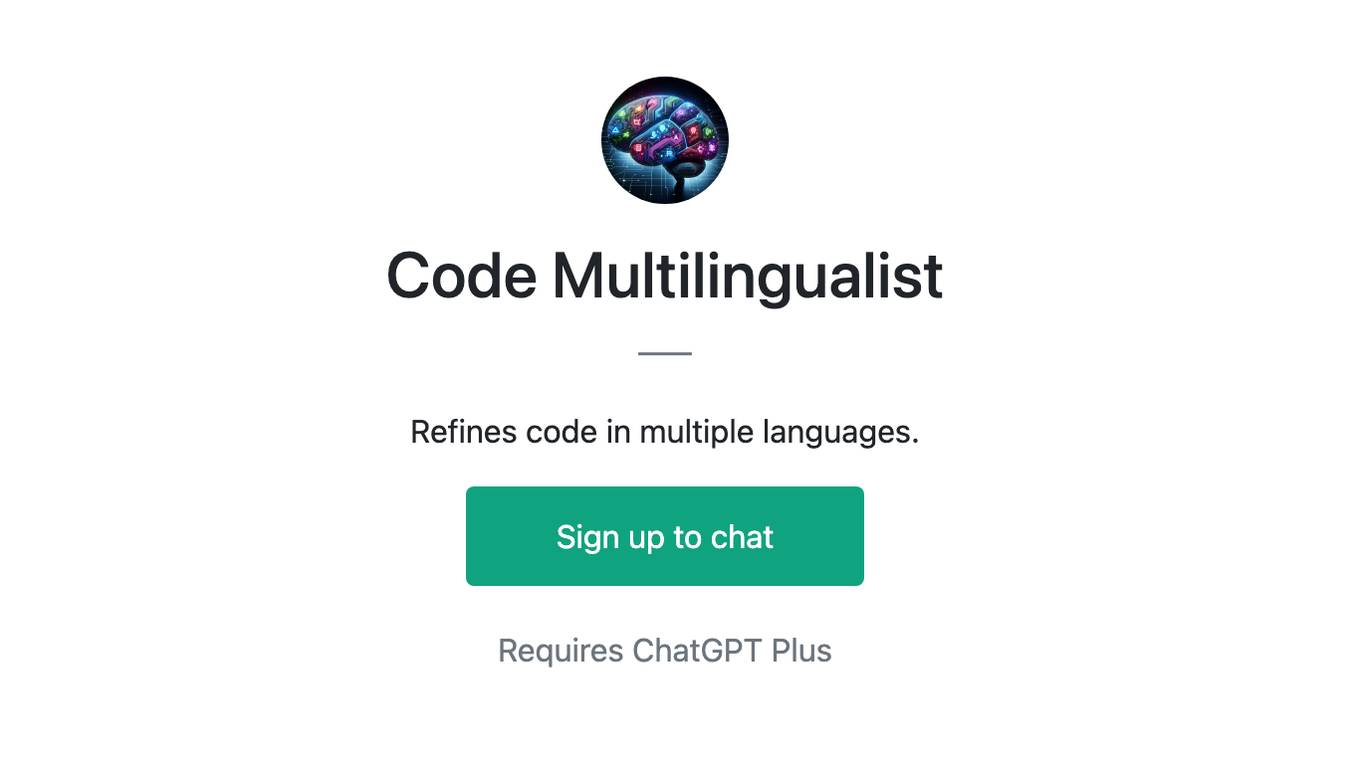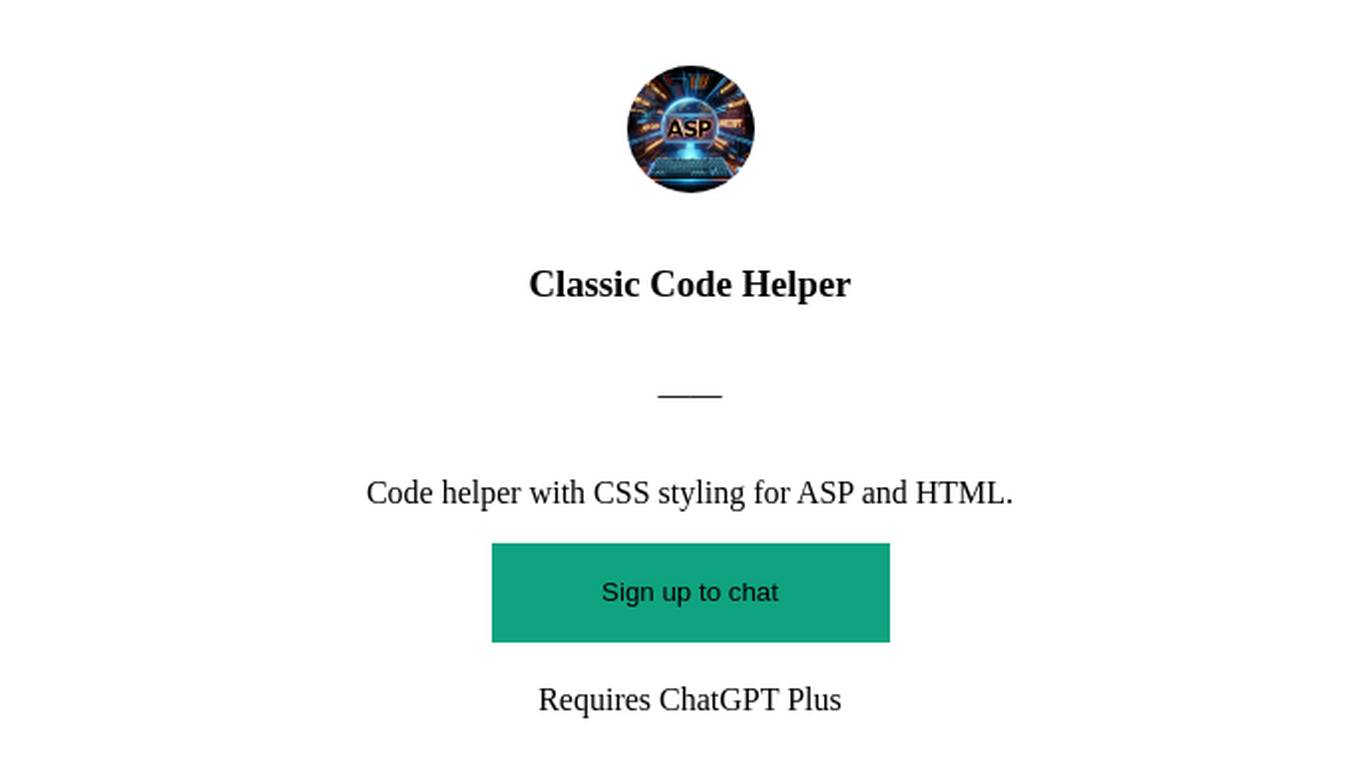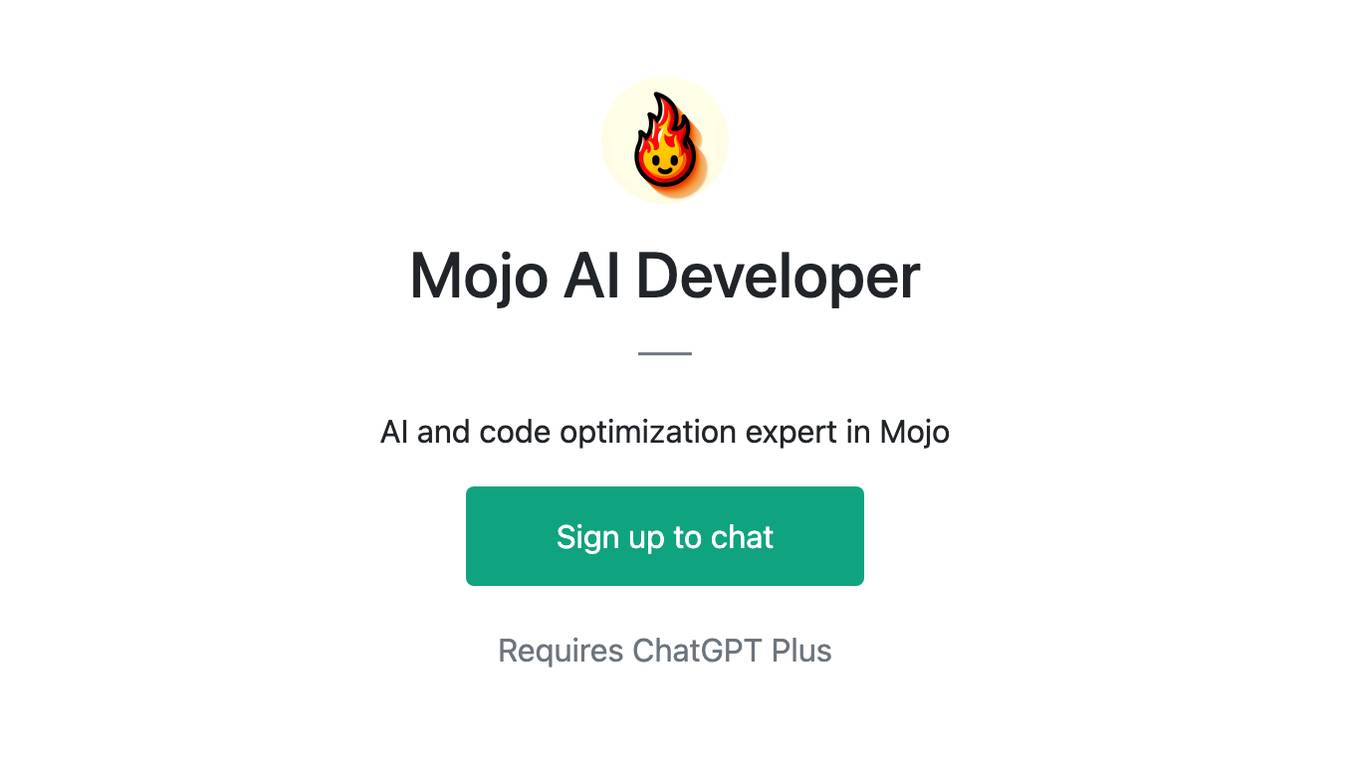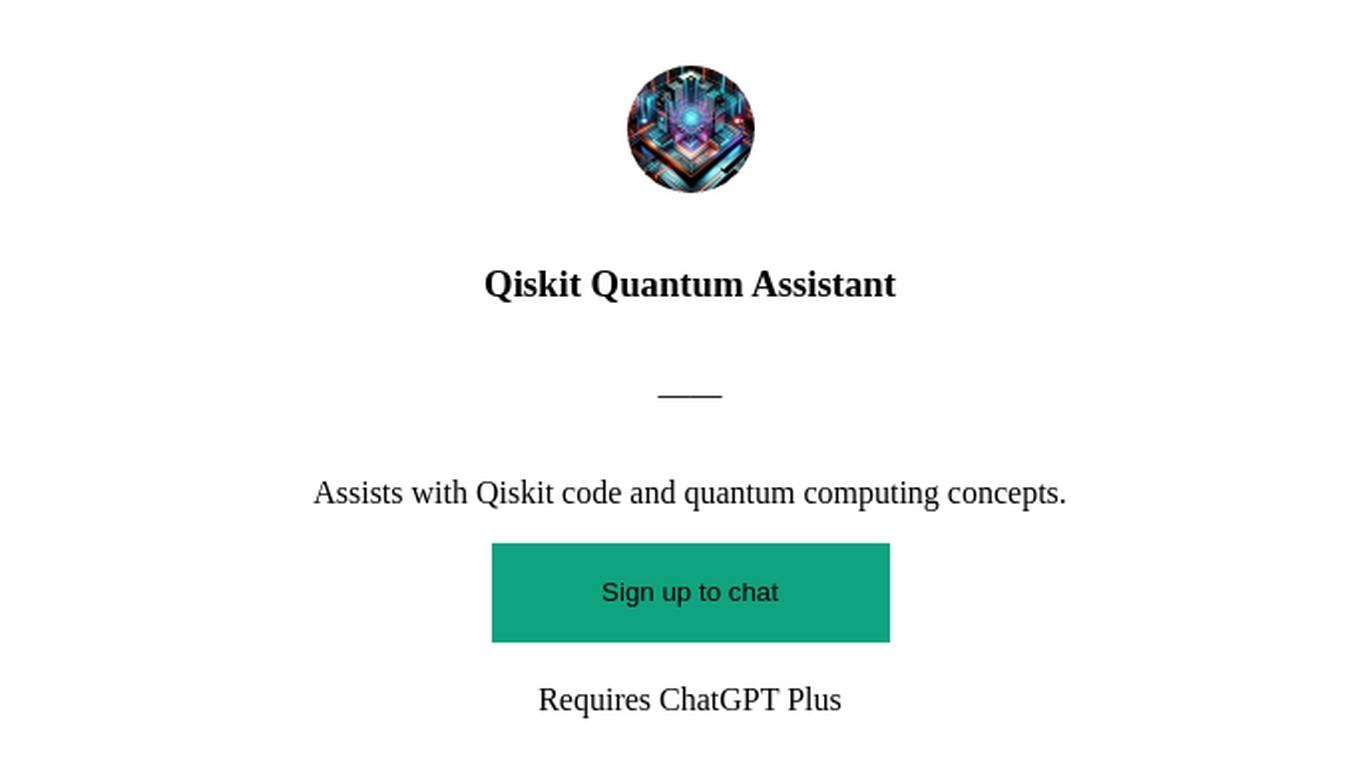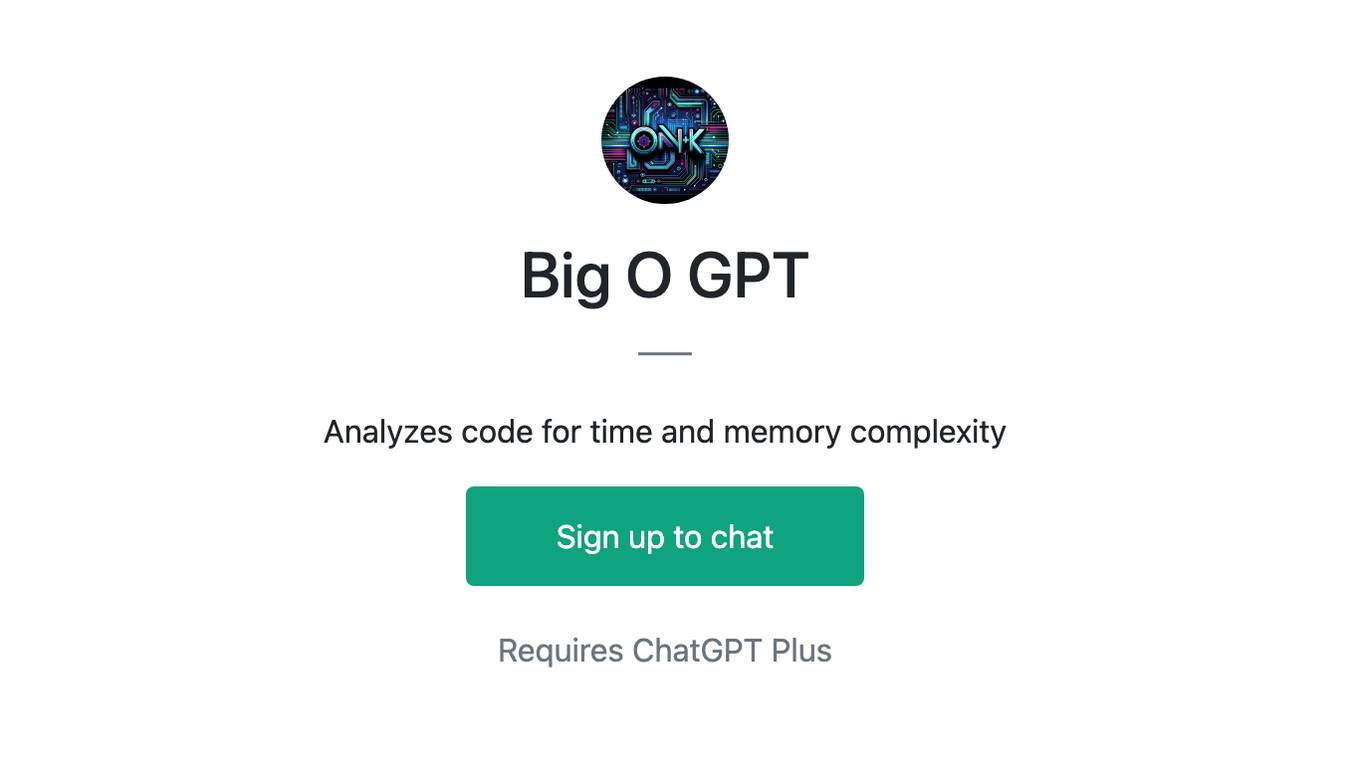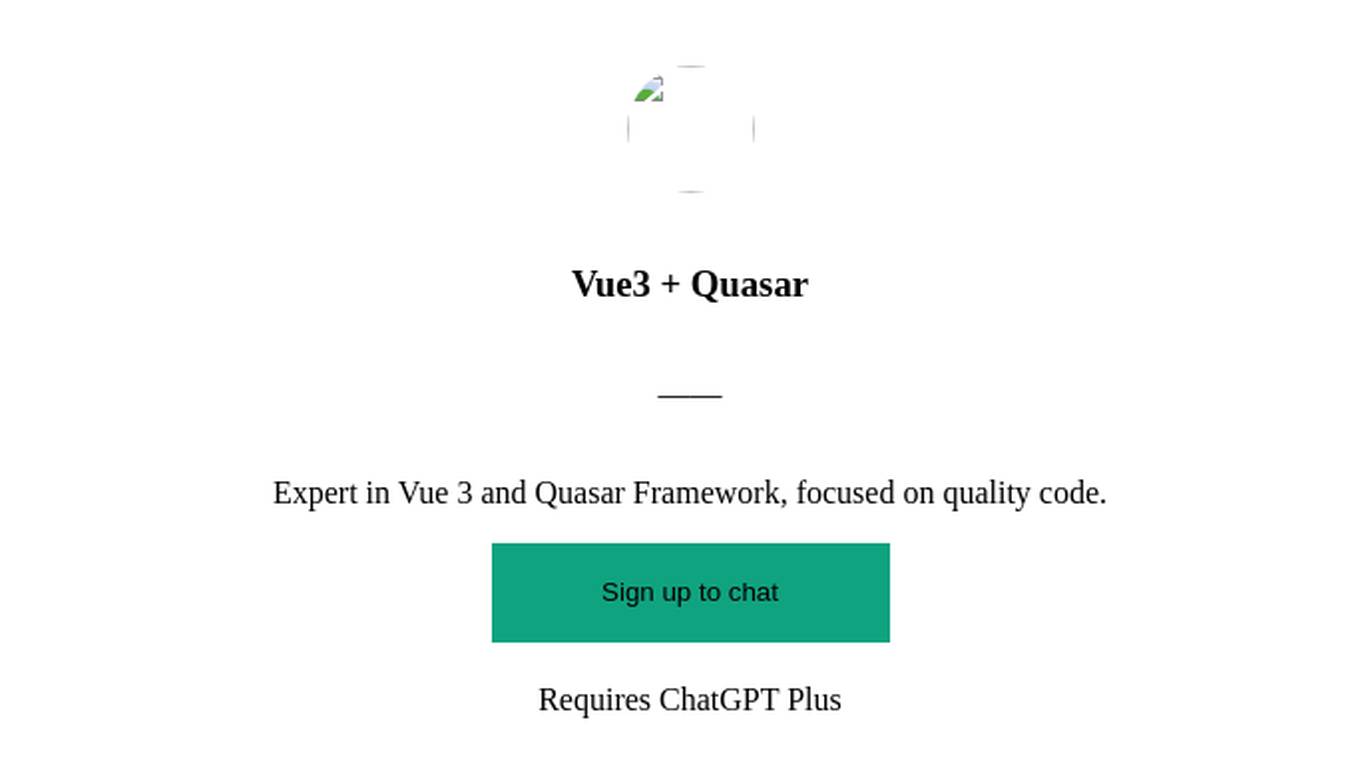Best AI tools for< Optimize Code Splitting >
20 - AI tool Sites
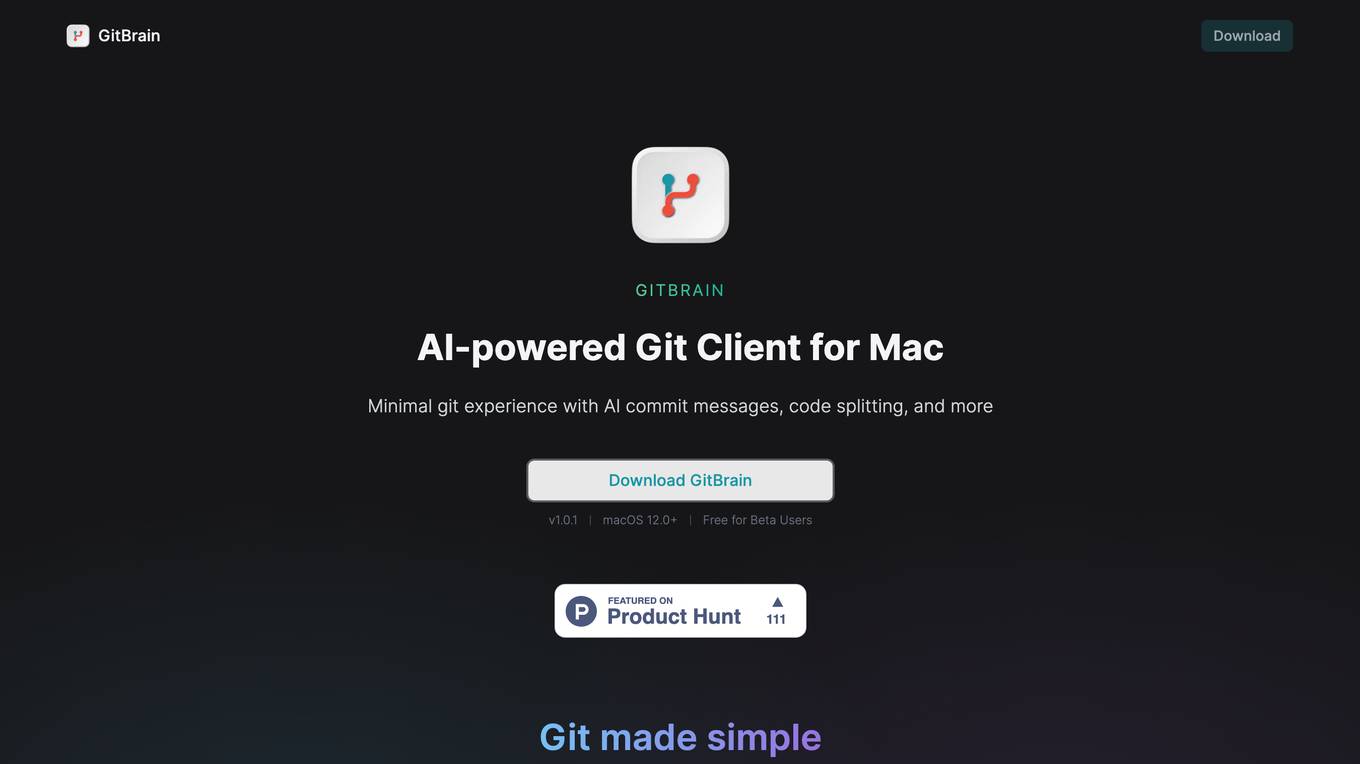
GitBrain
GitBrain is an AI-powered Git client designed for Mac users. It simplifies the Git workflow by offering features such as AI commit messages, code splitting, self code review, auto-detection of projects, and a keyboard-friendly design. The application aims to enhance developer productivity by intelligently managing code changes and providing a seamless Git management experience. GitBrain is optimized for performance on Mac devices, offering a native UI with light and dark mode themes.
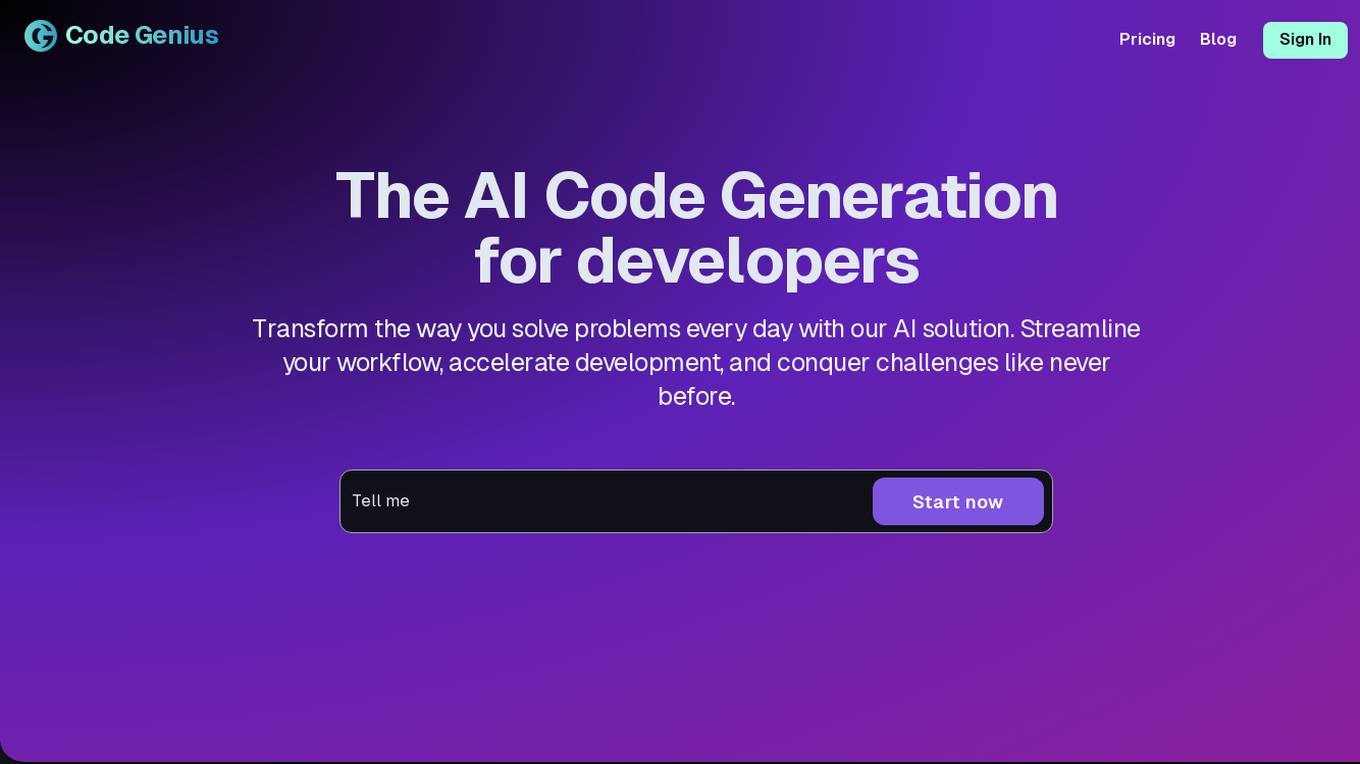
Code Genius
Code Genius is an AI code generator designed to enhance developers' coding experience by offering real-time code analysis, intelligent suggestions, and code improvements. It can generate unit tests, provide clear code documentation, and streamline workflow. The tool aims to optimize code, save time, and improve efficiency for developers worldwide.

Code to Flowchart
Code to Flowchart is an AI-powered tool that helps users visualize and understand program logic instantly. It allows users to convert code into interactive flowcharts with the help of AI analysis. The tool supports all major programming languages, identifies code paths and logic flows, and offers multiple visualization options like flowcharts, sequence diagrams, and class diagrams. Users can export diagrams in various formats and customize color schemes and themes. Code to Flowchart aims to simplify complex code structures and enhance collaboration among developers.
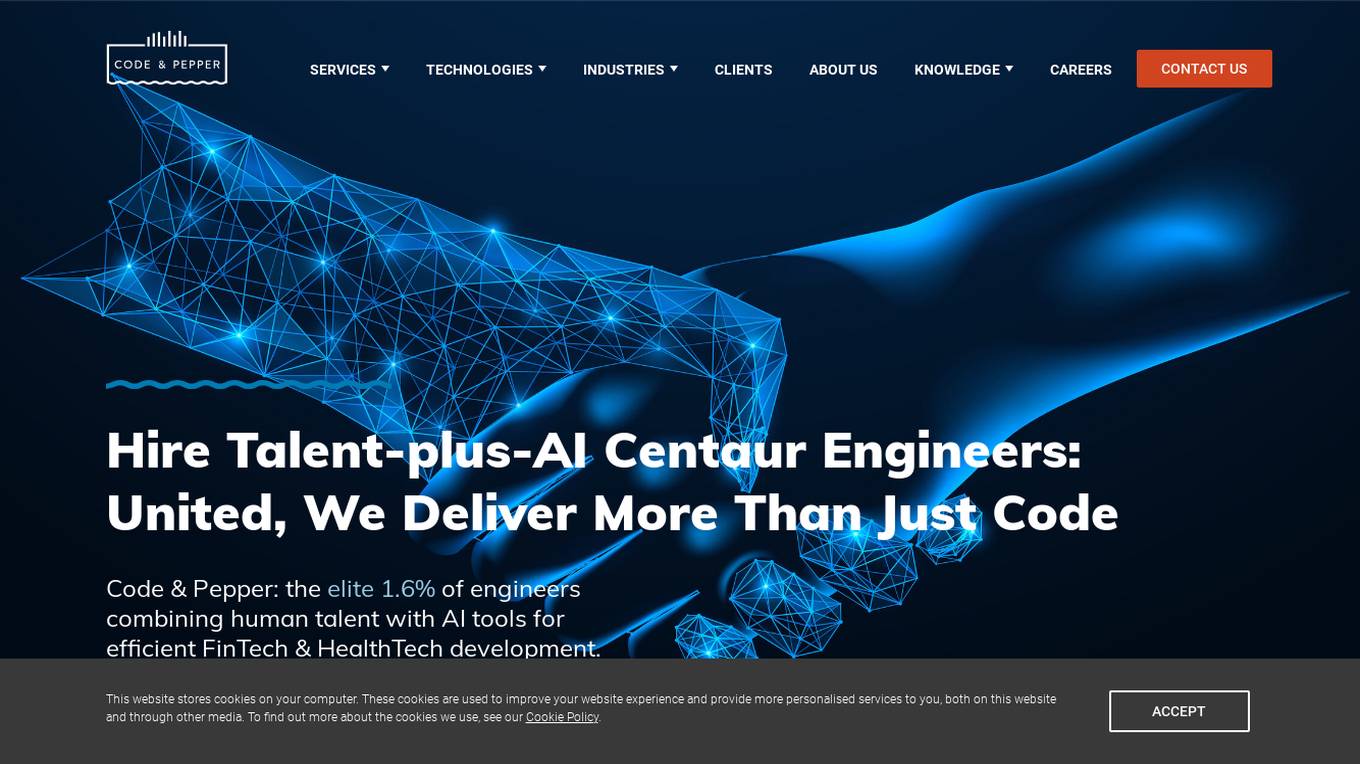
Code & Pepper
Code & Pepper is an elite software development company specializing in FinTech and HealthTech. They combine human talent with AI tools to deliver efficient solutions. With a focus on specific technologies like React.js, Node.js, Angular, Ruby on Rails, and React Native, they offer custom software products and dedicated software engineers. Their unique talent identification methodology selects the top 1.6% of candidates for exceptional outcomes. Code & Pepper champions human-AI centaur teams, harmonizing creativity with AI precision for superior results.
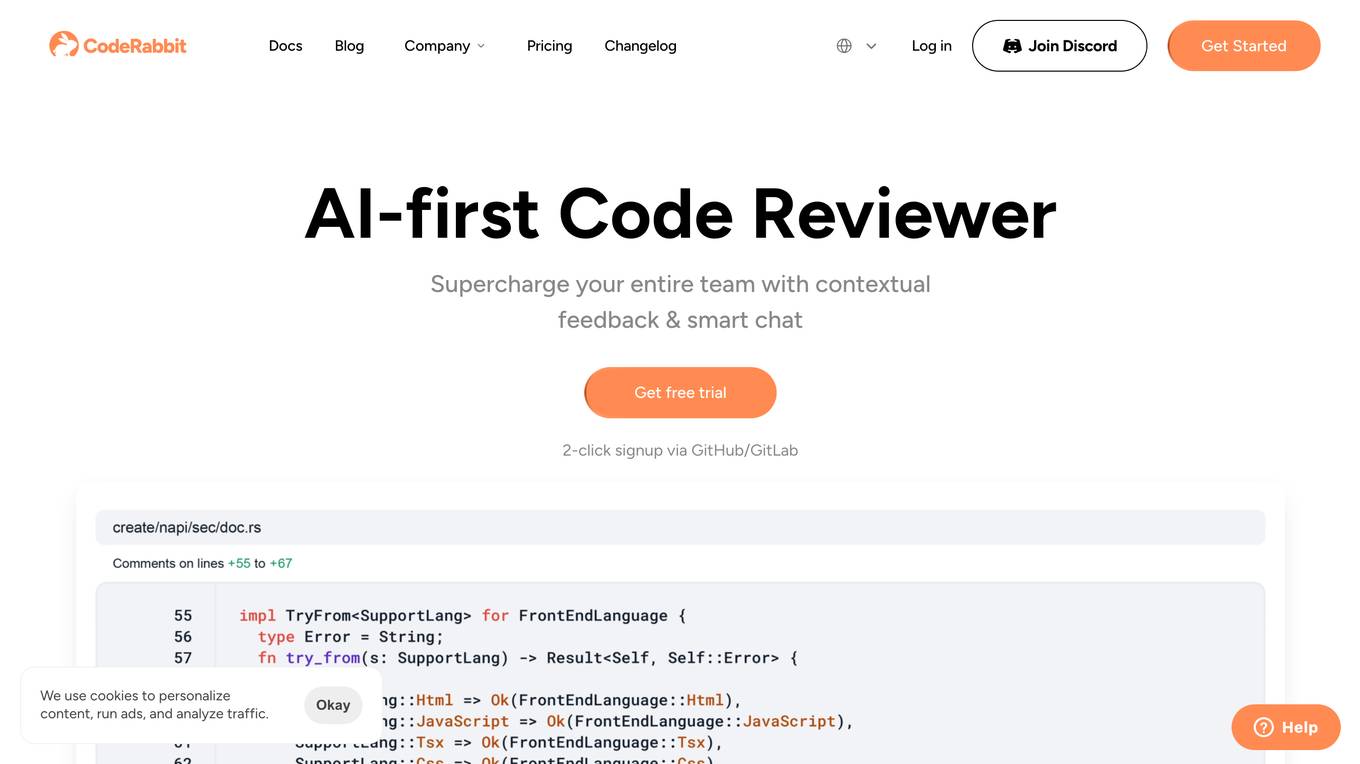
CodeRabbit
CodeRabbit is an innovative AI code review platform that streamlines and enhances the development process. By automating reviews, it dramatically improves code quality while saving valuable time for developers. The system offers detailed, line-by-line analysis, providing actionable insights and suggestions to optimize code efficiency and reliability. Trusted by hundreds of organizations and thousands of developers daily, CodeRabbit has processed millions of pull requests. Backed by CRV, CodeRabbit continues to revolutionize the landscape of AI-assisted software development.
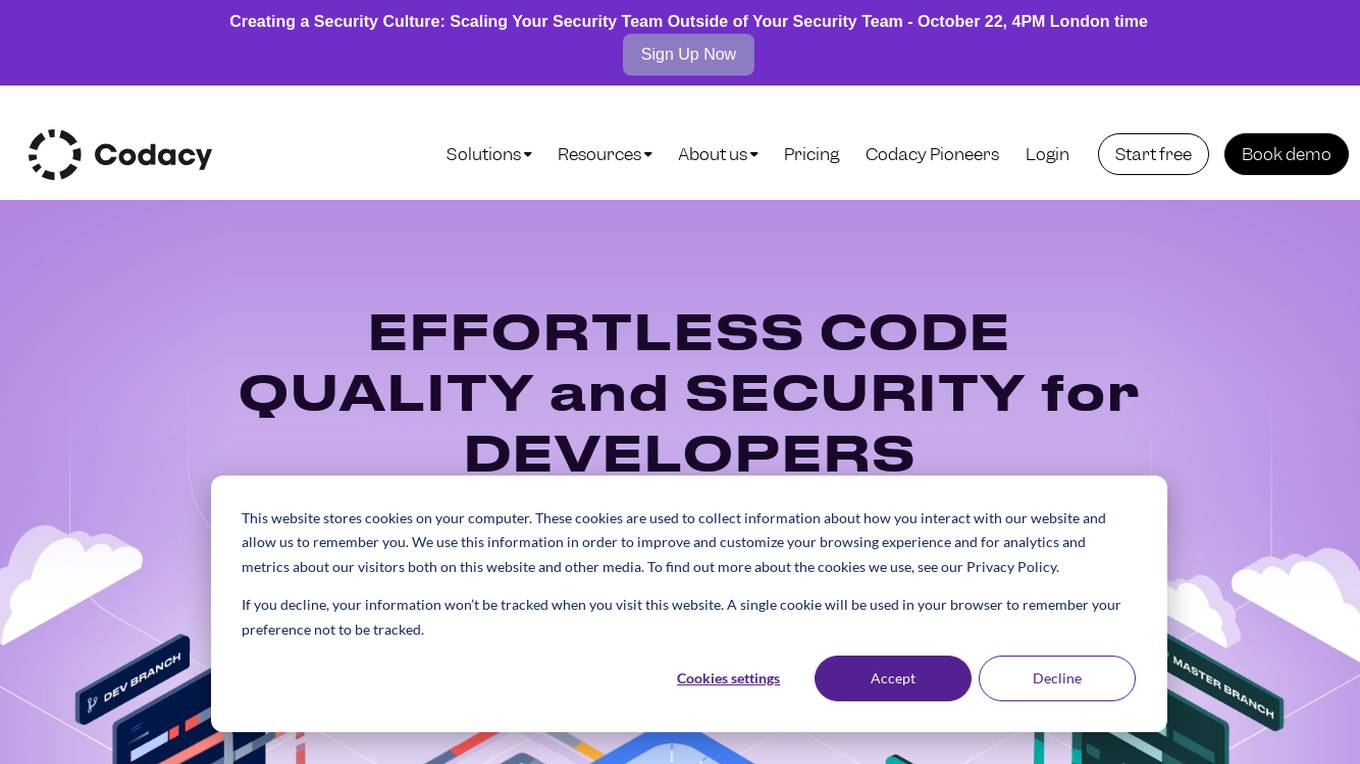
Codacy
Codacy is an AI-powered code quality and security platform designed for developers to efficiently optimize and secure their code. It offers a unified set of AppSec tools, data-driven insights, and seamless integrations across the software development lifecycle. Codacy helps teams monitor and resolve security issues at scale, improve code quality, and prevent breaking changes. With AI suggested fixes and effortless code quality monitoring, Codacy is a valuable tool for businesses and developers alike.
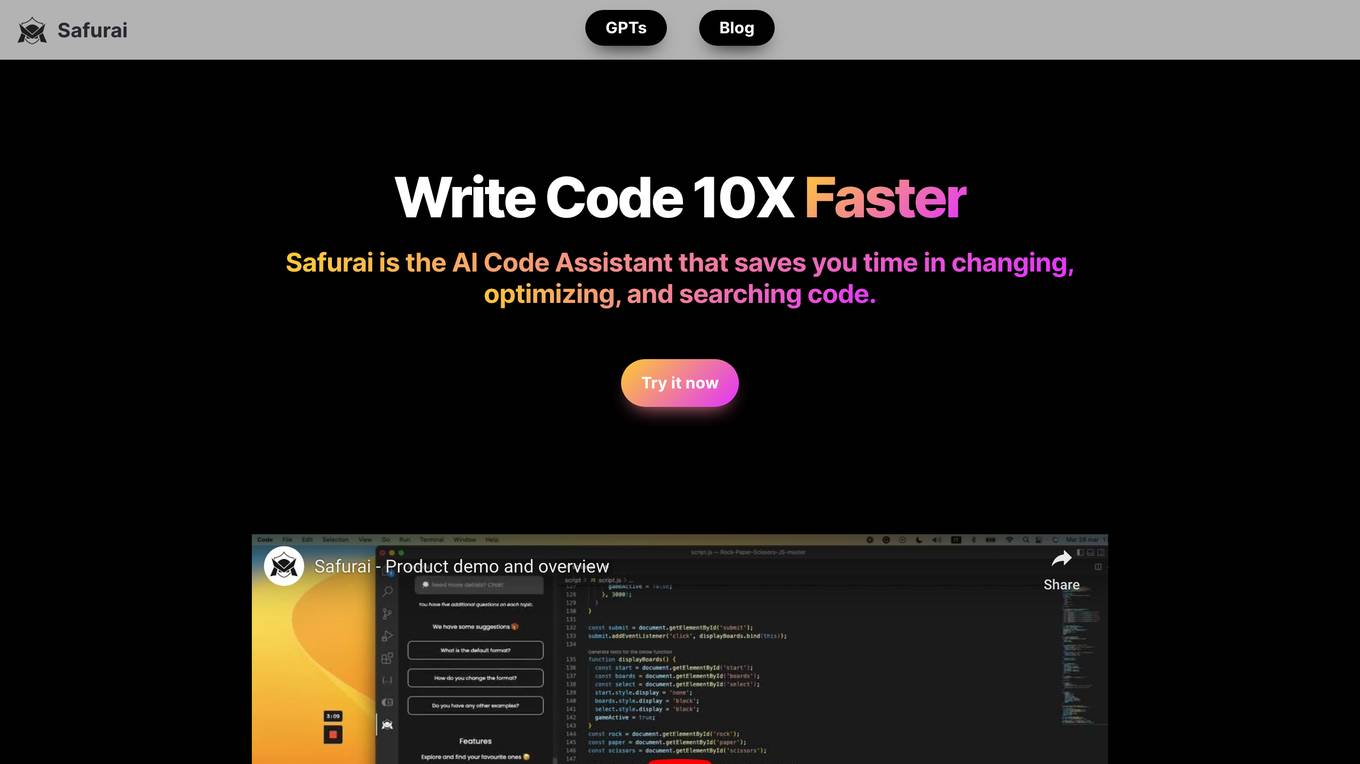
Safurai
Safurai is an AI-powered coding assistant that helps developers write code faster, safer, and better. It offers a range of features, including a textbox for asking questions and getting code suggestions, shortcuts for code optimization and unit testing, the ability to train the assistant on specific projects, and a natural language search for finding code. Safurai is compatible with various IDEs, including Visual Studio Code, IntelliJ, and PyCharm.
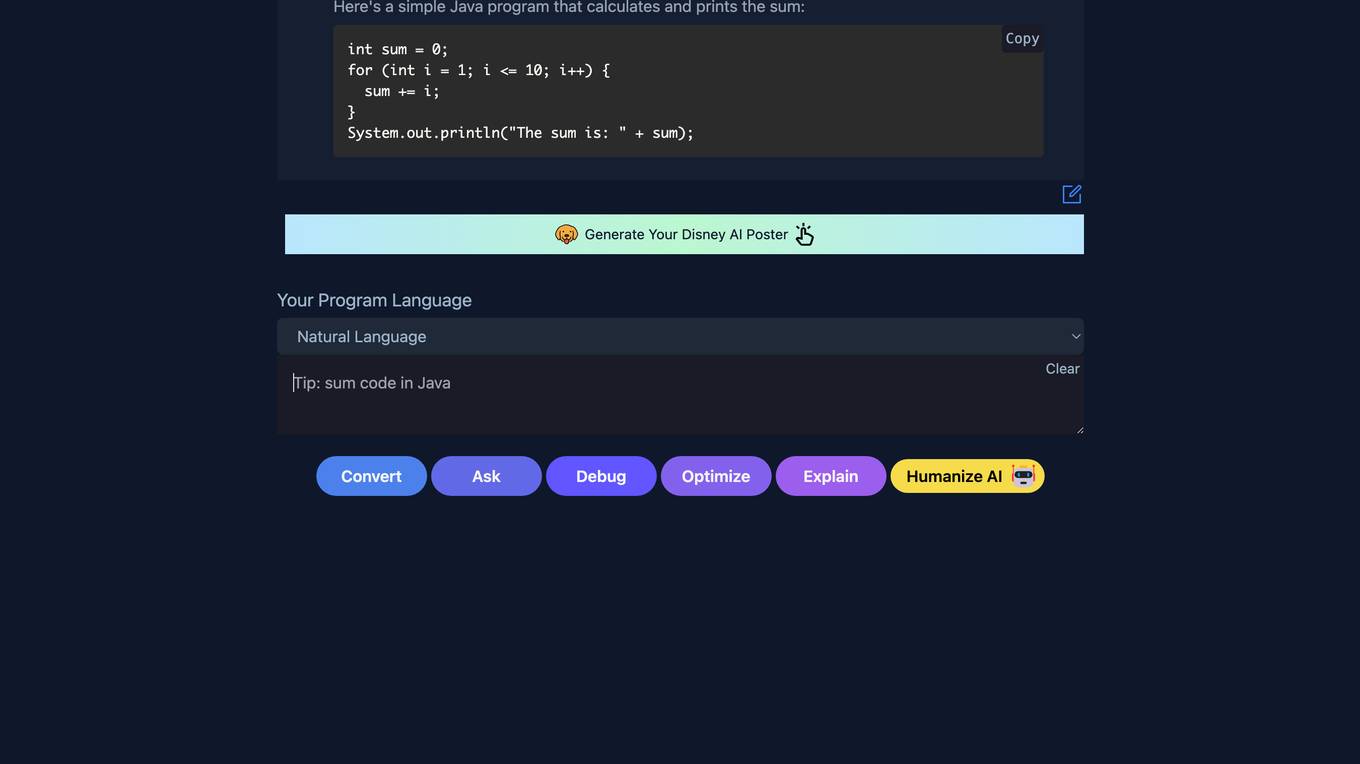
AICodeConvert
AICodeConvert is an AI tool that simplifies coding by integrating AI Code Translator and AI Code Generator. It efficiently translates existing code into different programming languages and automatically generates high-quality code snippets and templates. This powerful combination makes AICodeConvert an indispensable tool for developers, providing a convenient and intelligent coding experience.

Smaty.xyz
Smaty.xyz is a comprehensive platform that provides a suite of tools for code generation and security auditing. With Smaty.xyz, developers can quickly and easily generate high-quality code in multiple programming languages, ensuring consistency and reducing development time. Additionally, Smaty.xyz offers robust security auditing capabilities, enabling developers to identify and address vulnerabilities in their code, mitigating risks and enhancing the overall security of their applications.
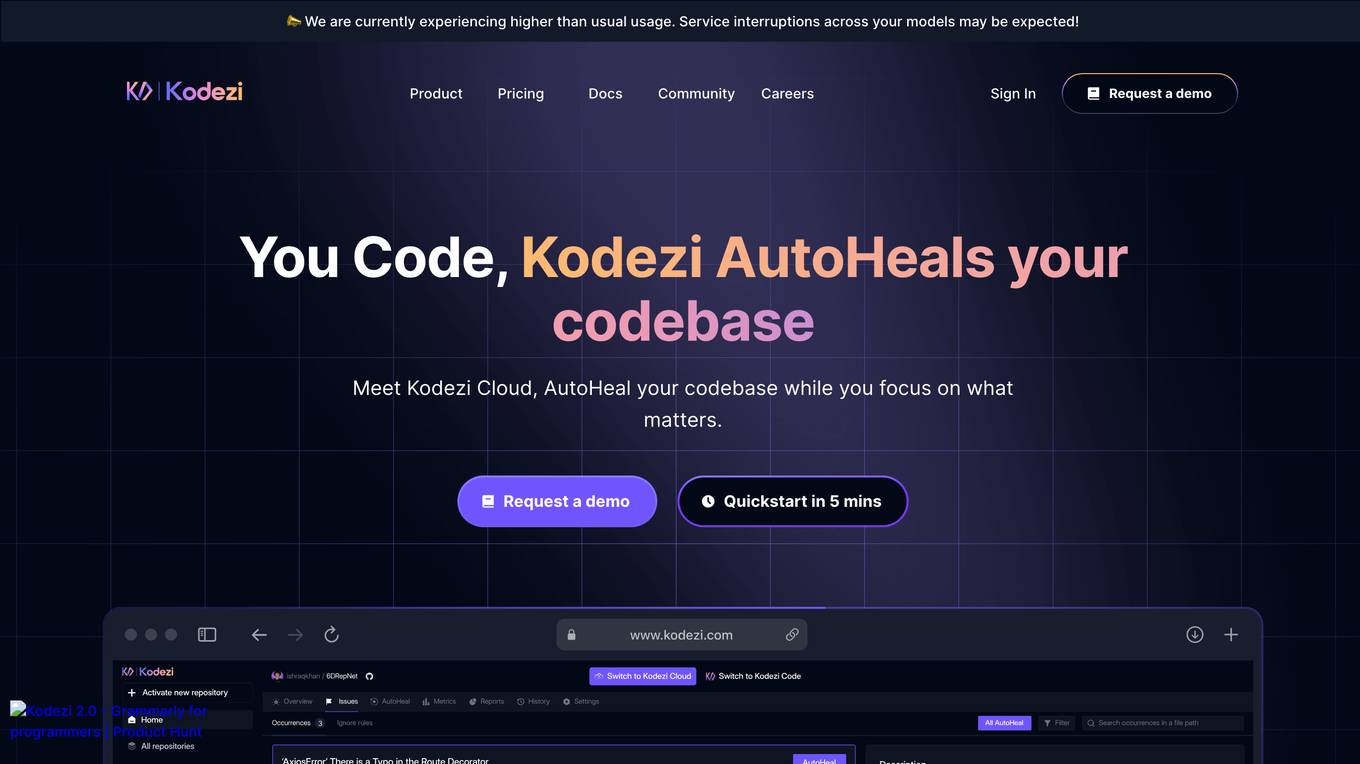
Kodezi
Kodezi is an AI-powered development tool that helps developers write better code. It offers a range of features to help developers with tasks such as code autocorrect, code review, and debugging. Kodezi is available as a web-based IDE, a VS Code extension, and an enterprise solution.

Frugal
Frugal is an intelligent application cost engineering platform that optimizes code to reduce cloud costs automatically. It is the first AI-powered cost optimization platform built for engineers, empowering them to find and fix inefficiencies in code that drain cloud budgets. The platform aims to reinvent cost engineering by enabling developers to reduce application costs and improve cloud efficiency through automated identification and resolution of wasteful practices.
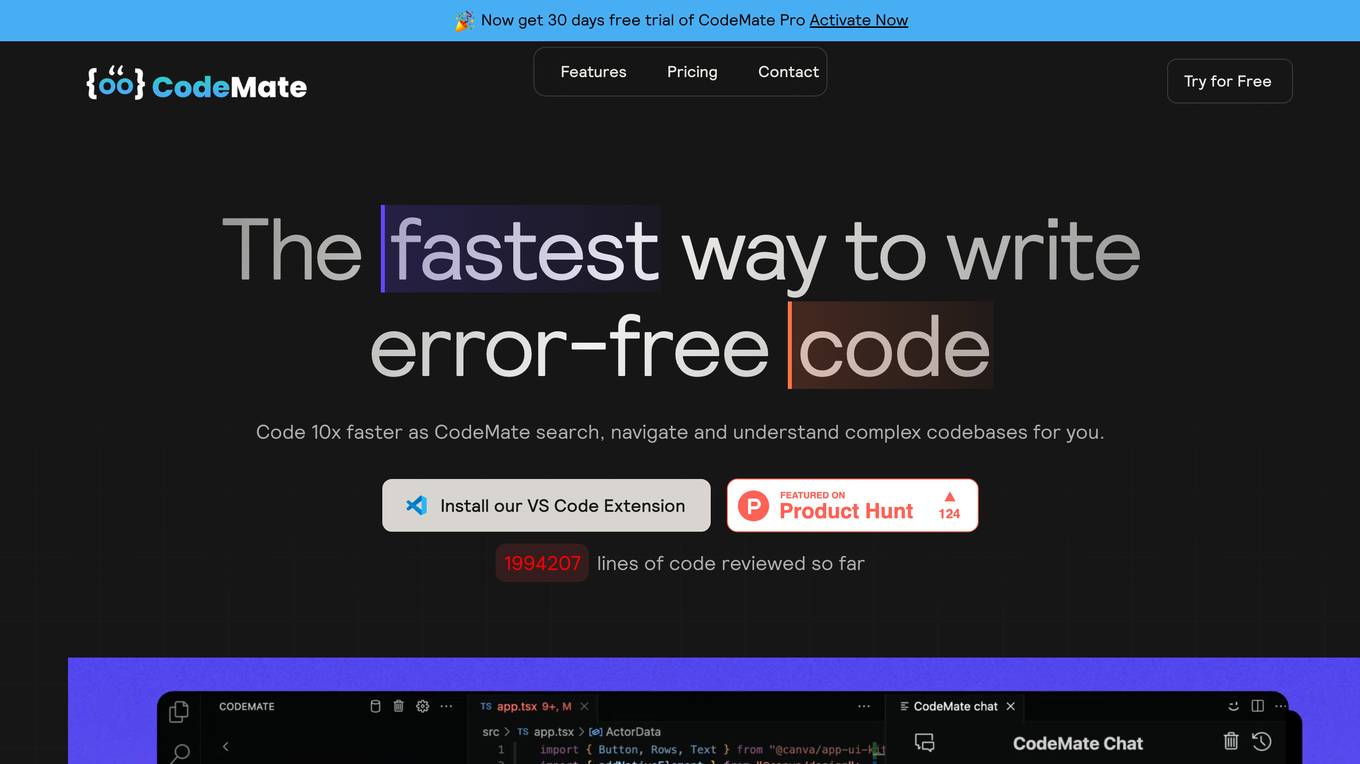
CodeMate
CodeMate is an AI pair programmer tool designed to help developers write error-free code faster. It offers features like code navigation, understanding complex codebases, intuitive interface for smarter coding, instant debugging, code refactoring, and AI-powered code reviews. CodeMate supports all programming languages and provides suggestions for code optimizations. The tool ensures the security and privacy of user code and offers different pricing plans for individual developers, teams, and enterprises. Users can interact with their codebase, documentation, and Git repositories using CodeMate Chat. The tool aims to improve code quality and productivity by acting as a co-developer while programming.
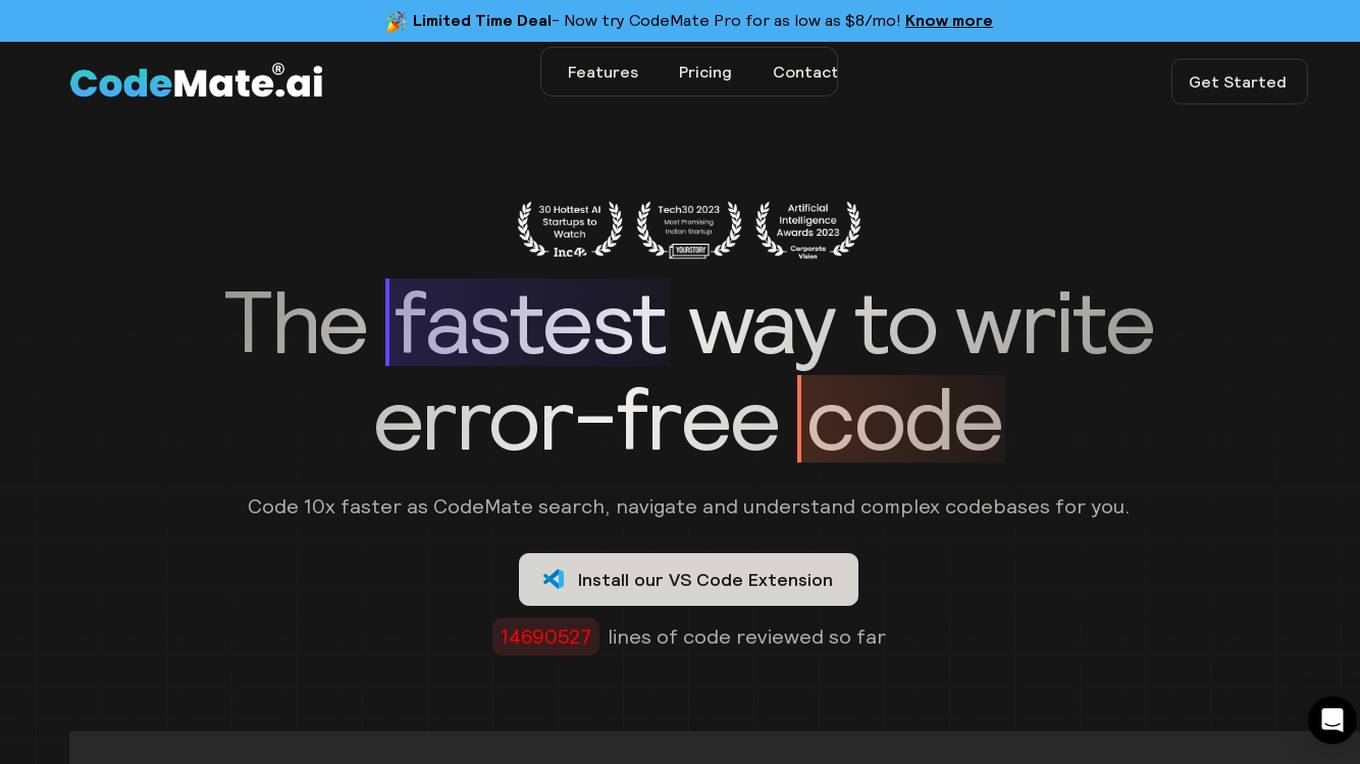
CodeMate
CodeMate is an AI pair programmer tool designed to help developers write error-free code faster and more efficiently. It offers features such as code analysis, debugging assistance, code refactoring, and code review using advanced AI algorithms and machine learning techniques. CodeMate supports various programming languages and provides a secure environment for developers to work on their projects. With a user-friendly interface and collaborative features, CodeMate aims to streamline the coding process and enhance productivity for individual developers, teams, and enterprises.
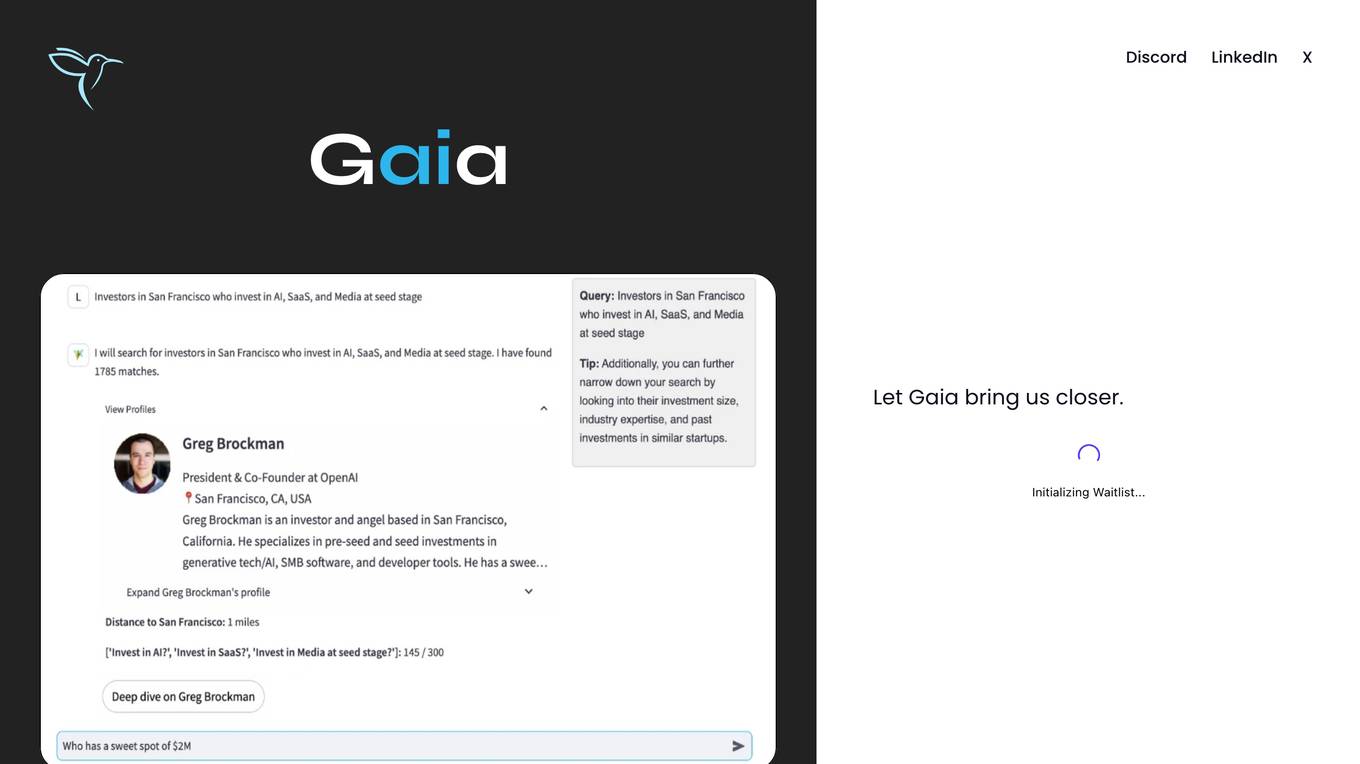
AdaL
AdaL is a self-evolving AI coding agent designed for teams and power developers. It learns from your entire team and codebase, reducing syncing time and waiting periods to deliver at the speed of thought. AdaL runs locally on your machine or remote server, ensuring privacy as your code stays private. It offers input via terminal or web interface, allowing for power or visual interactions. With the ability to switch models mid-session and collaborate with multiple models, AdaL aims to help developers bring their ideas to life efficiently and effectively.
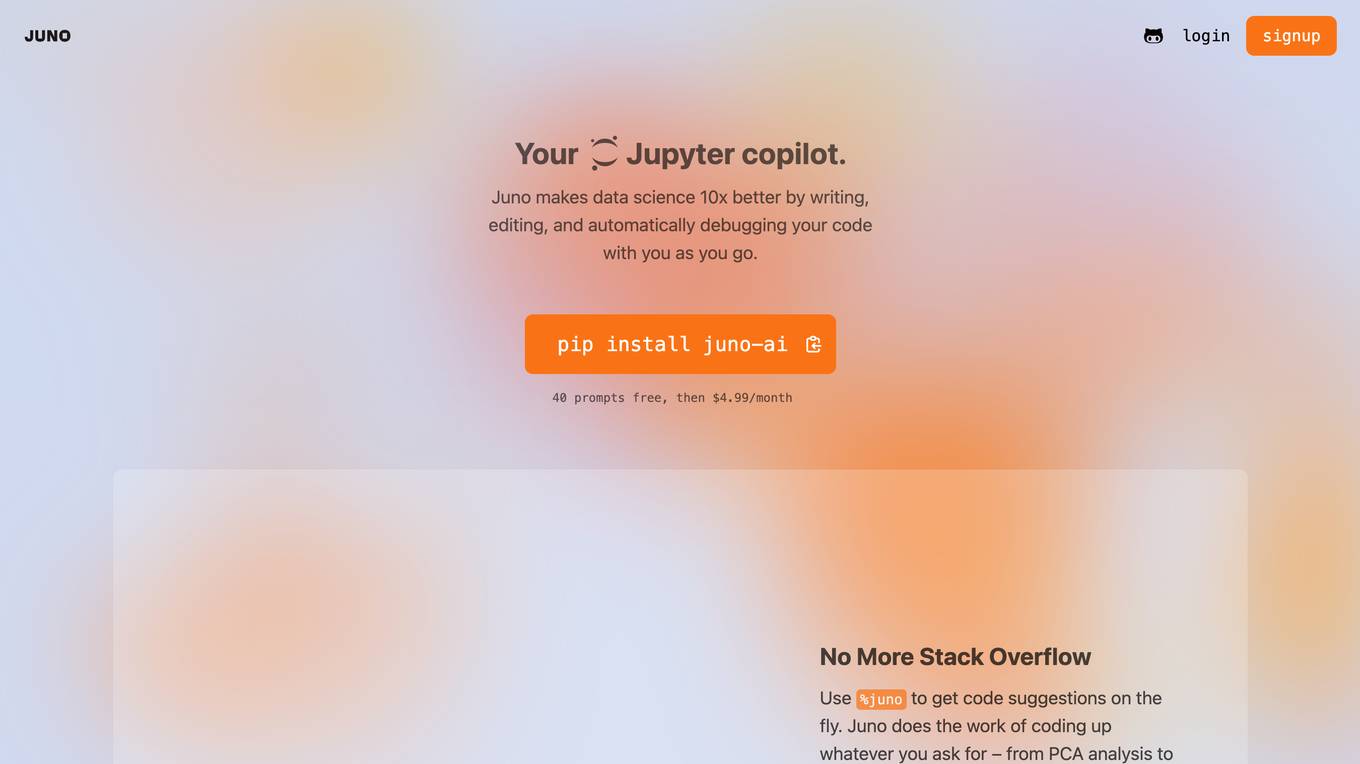
Juno
Juno is an AI tool designed to enhance data science workflows by providing code suggestions, automatic debugging, and code editing capabilities. It aims to make data science tasks more efficient and productive by assisting users in writing and optimizing code. Juno prioritizes privacy and offers the option to run on private servers for sensitive datasets.
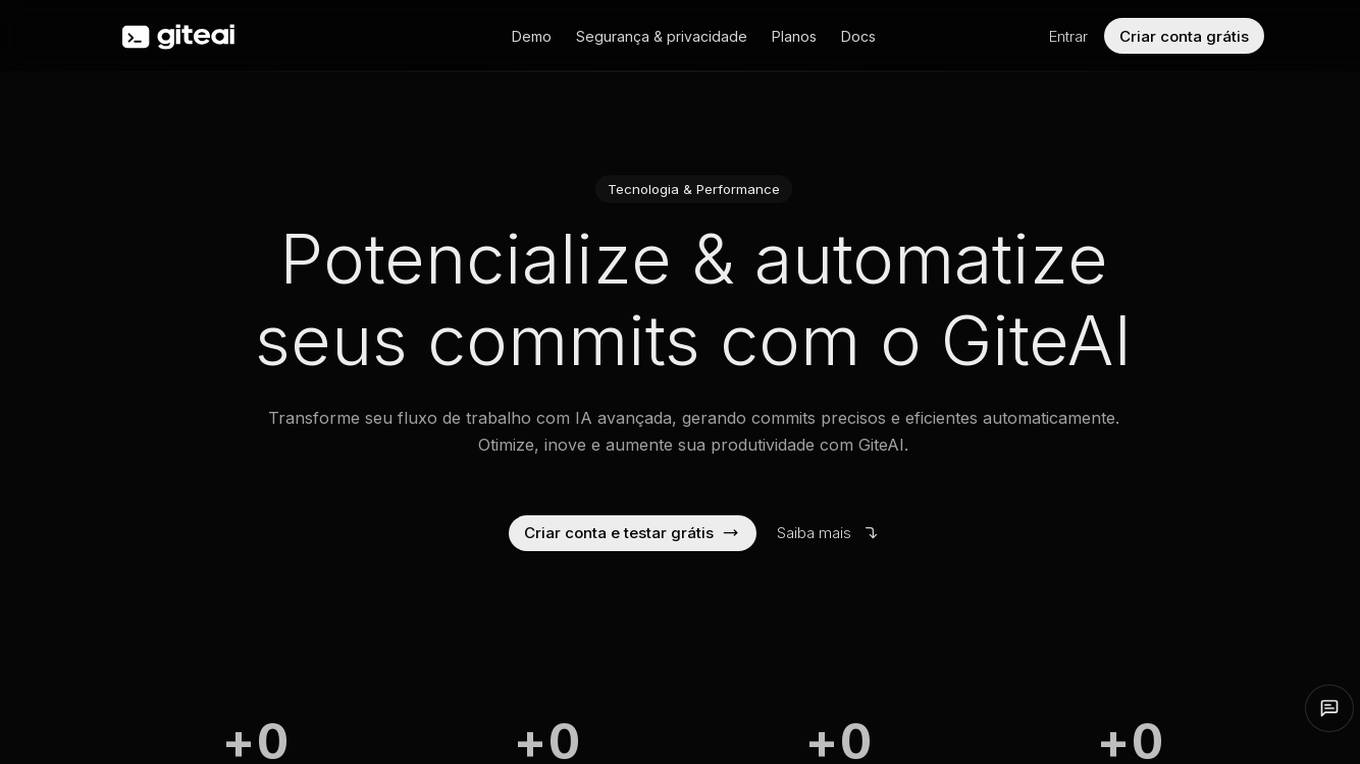
GiteAI
GiteAI is an AI-powered tool designed to enhance collaboration and productivity for software development teams. It leverages machine learning algorithms to automate code reviews, identify bugs, and suggest improvements in real-time. With GiteAI, developers can streamline their workflow, reduce manual efforts, and ensure code quality. The platform integrates seamlessly with popular version control systems like GitHub, GitLab, and Bitbucket, providing actionable insights and analytics to drive continuous improvement.
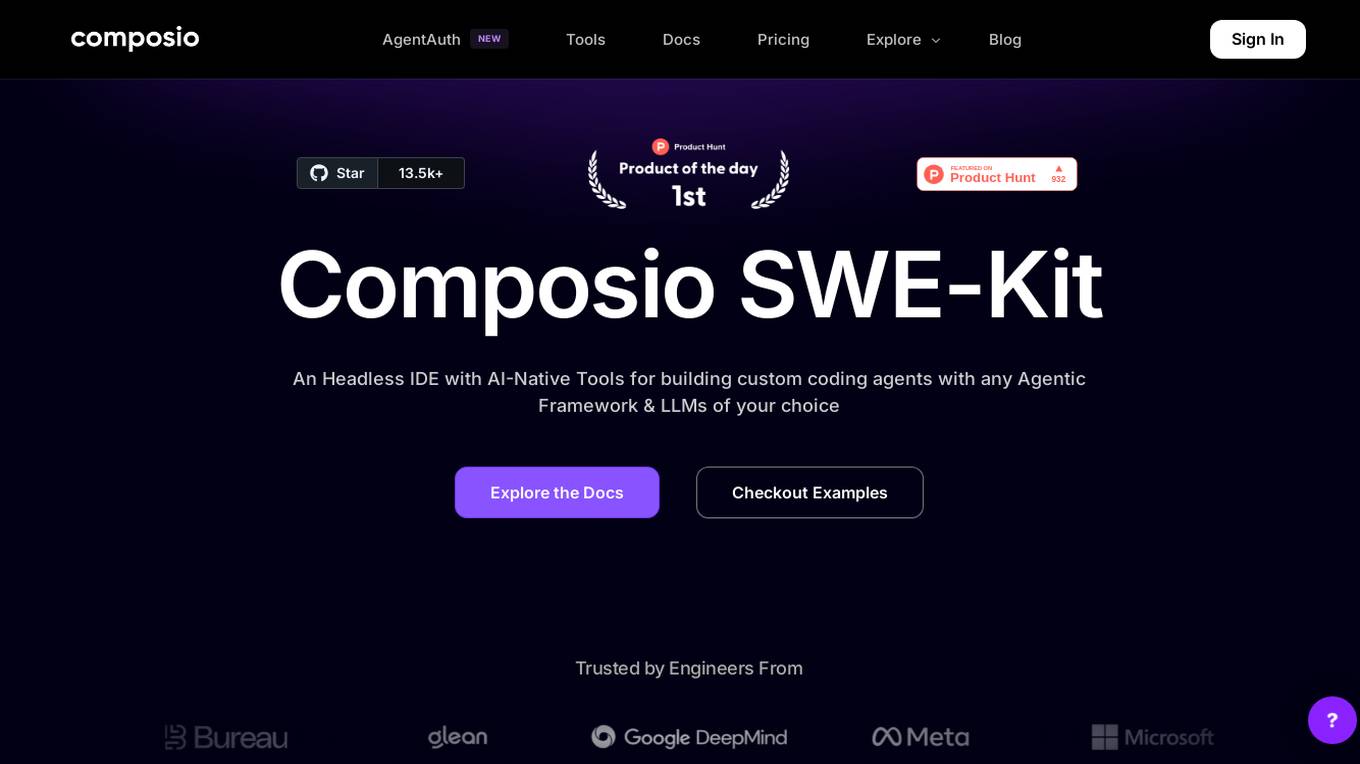
SWE Kit
SWE Kit is an open-source headless IDE designed for building custom coding agents with state-of-the-art performance. It offers AI-native tools to streamline the coding review process, enhance code quality, and optimize development efficiency. The application supports various agentic frameworks and LLM inference providers, providing a flexible runtime environment for seamless codebase interaction. With features like code analysis, code indexing, and third-party service integrations, SWE Kit empowers developers to create and run coding agents effortlessly.

Harness
Harness is an AI-driven software delivery platform that empowers software engineering teams with AI-infused technology for seamless software delivery. It offers a single platform for all software delivery needs, including DevOps modernization, continuous delivery, GitOps, feature flags, infrastructure as code management, chaos engineering, service reliability management, secure software delivery, cloud cost optimization, and more. Harness aims to simplify the developer experience by providing actionable insights on SDLC, secure software supply chain assurance, and AI development assistance throughout the software delivery lifecycle.

CodeScope
CodeScope is an AI tool designed to help users build and edit incredible AI applications. It offers features like one-click code and SEO performance optimization, AI app builder, API creation, headless CMS, development tools, and SEO reporting. CodeScope aims to revolutionize the development workflow by providing a comprehensive solution for developers and marketers to enhance collaboration and efficiency in the digital development and marketing landscape.
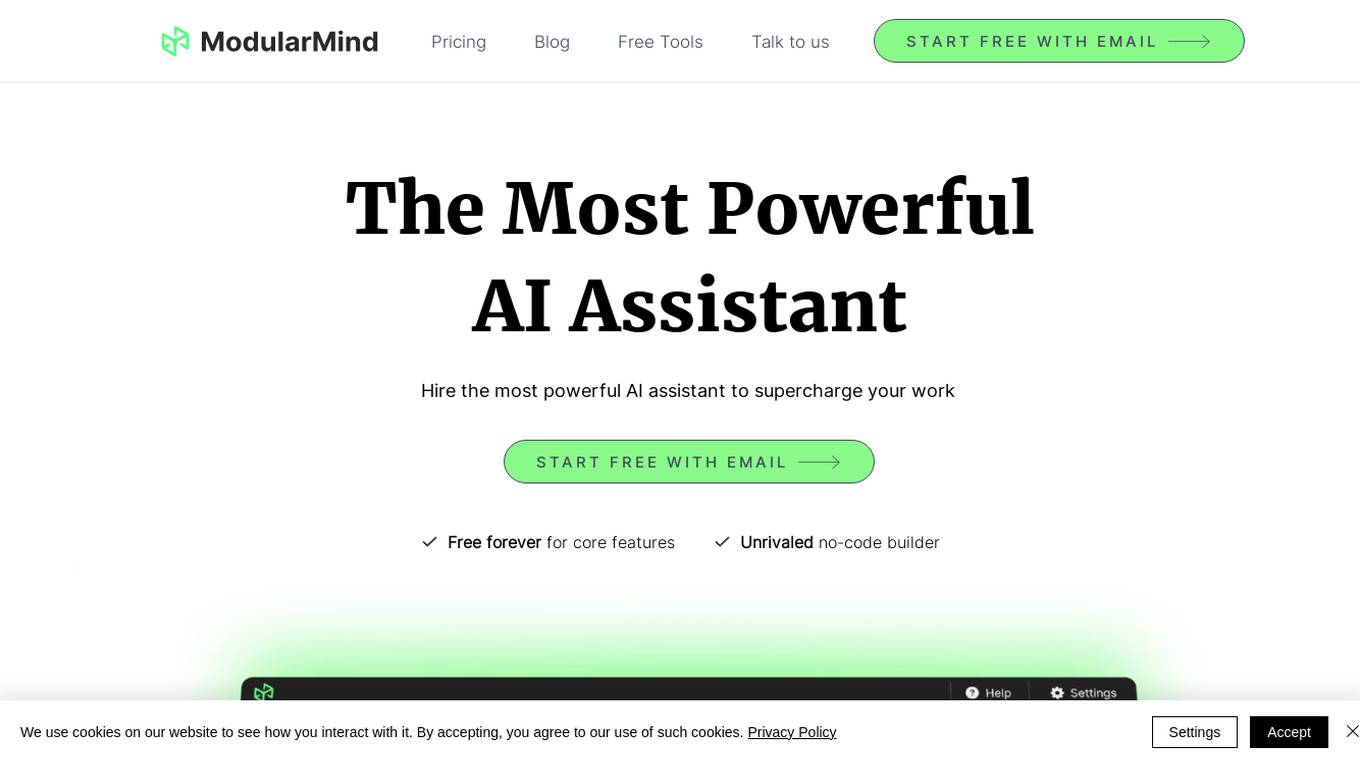
ModularMind
ModularMind is a powerful AI assistant application designed to supercharge work efficiency by offering a range of AI-powered features. It allows users to extract relevant content and links from multiple web pages simultaneously, build AI workflows without coding, save prompts, import data, and utilize ready-to-use templates. Trusted by professionals, ModularMind enhances productivity by automating tasks and streamlining workflows.
1 - Open Source AI Tools
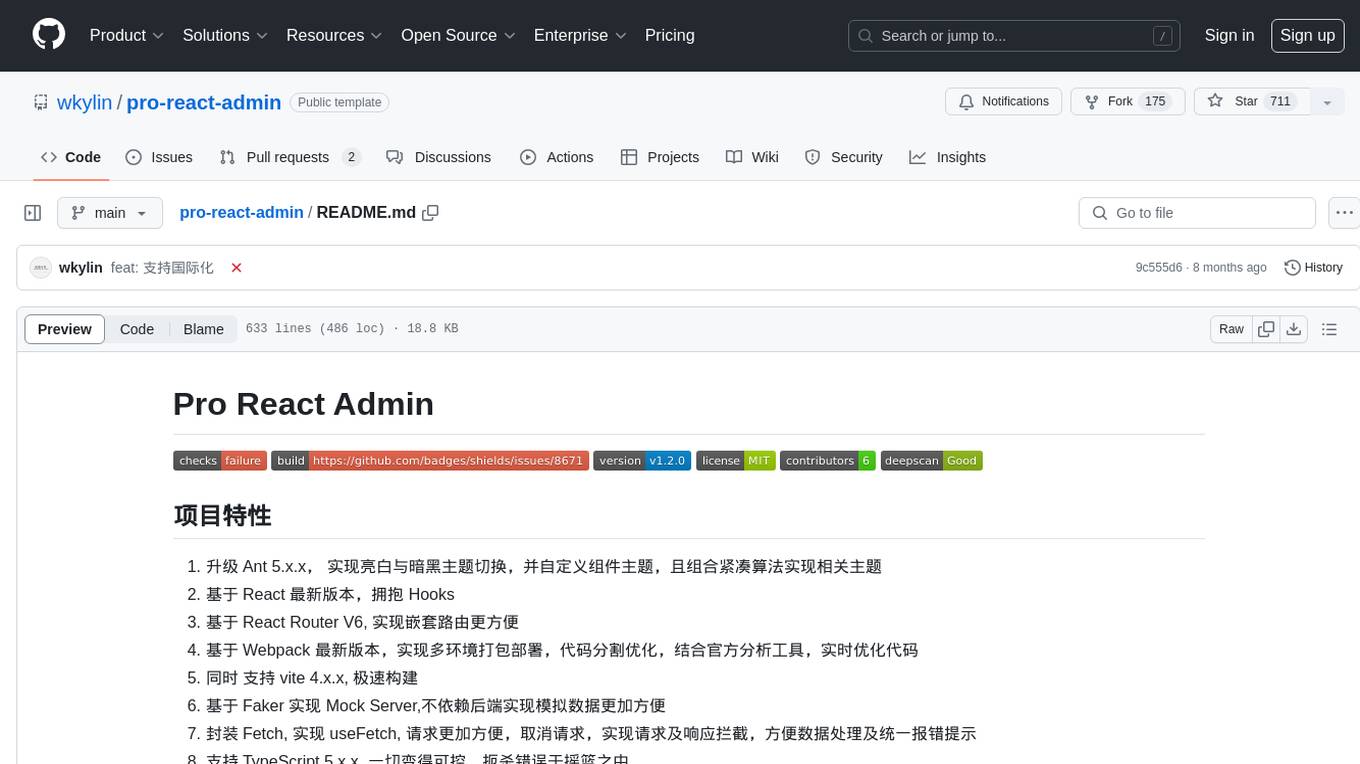
pro-react-admin
Pro React Admin is a comprehensive React admin template that includes features such as theme switching, custom component theming, nested routing, webpack optimization, TypeScript support, multi-tabs, internationalization, code styling, commit message configuration, error handling, code splitting, component documentation generation, and more. It also provides tools for mock server implementation, deployment, linting, formatting, and continuous code review. The template supports various technologies like React, React Router, Webpack, Babel, Ant Design, TypeScript, and Vite, making it suitable for building efficient and scalable React admin applications.
20 - OpenAI Gpts
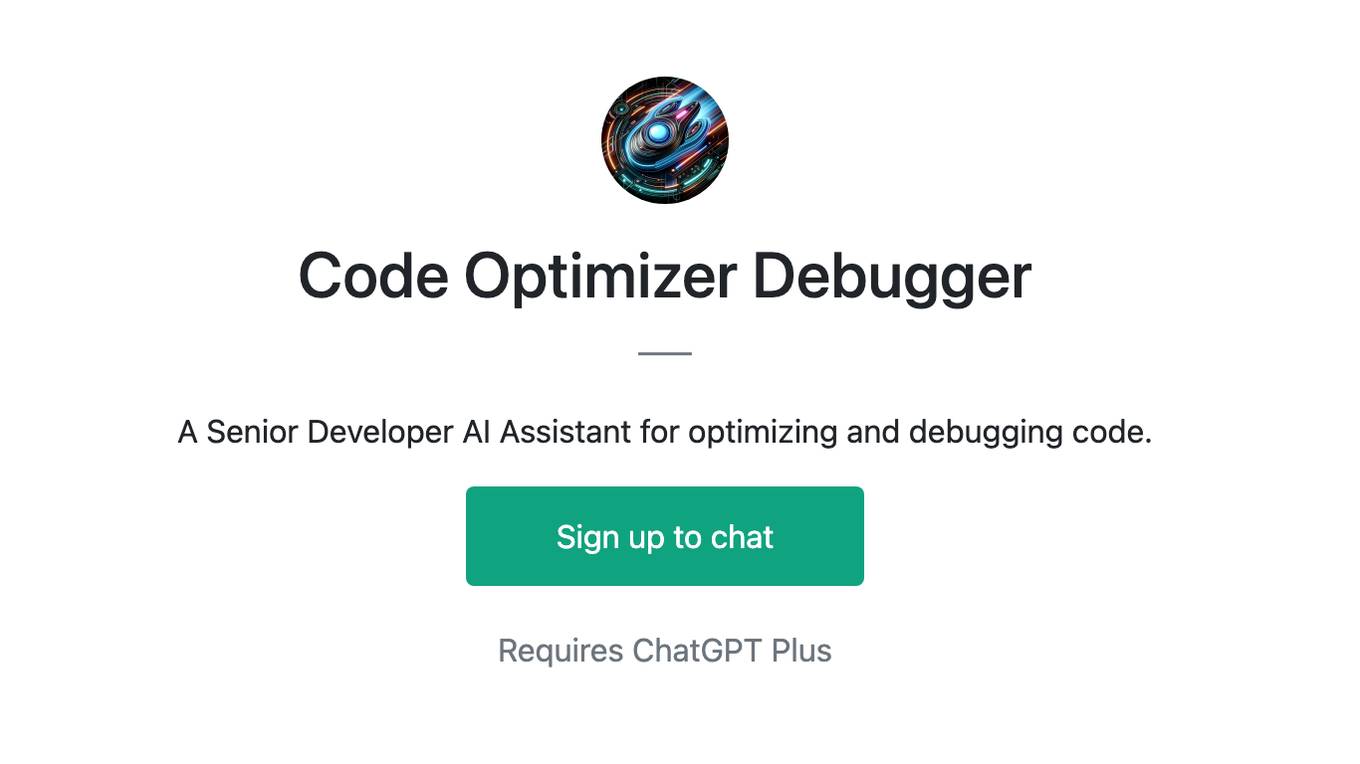
Code Optimizer Debugger
A Senior Developer AI Assistant for optimizing and debugging code.
Code Architect AI
First discusses assistant details, then implements tailored code solutions.

Code Buddy
Your own personal senior software engineer mentor critiquing and optimizing your code helping your improve.
Pythonator
Custom GPT for Python Experts: Elevate your code with AI-driven optimizations, advanced debugging, and the latest Python trends. Tailored for seasoned developers, it's your key to mastering Pythonic best practices.
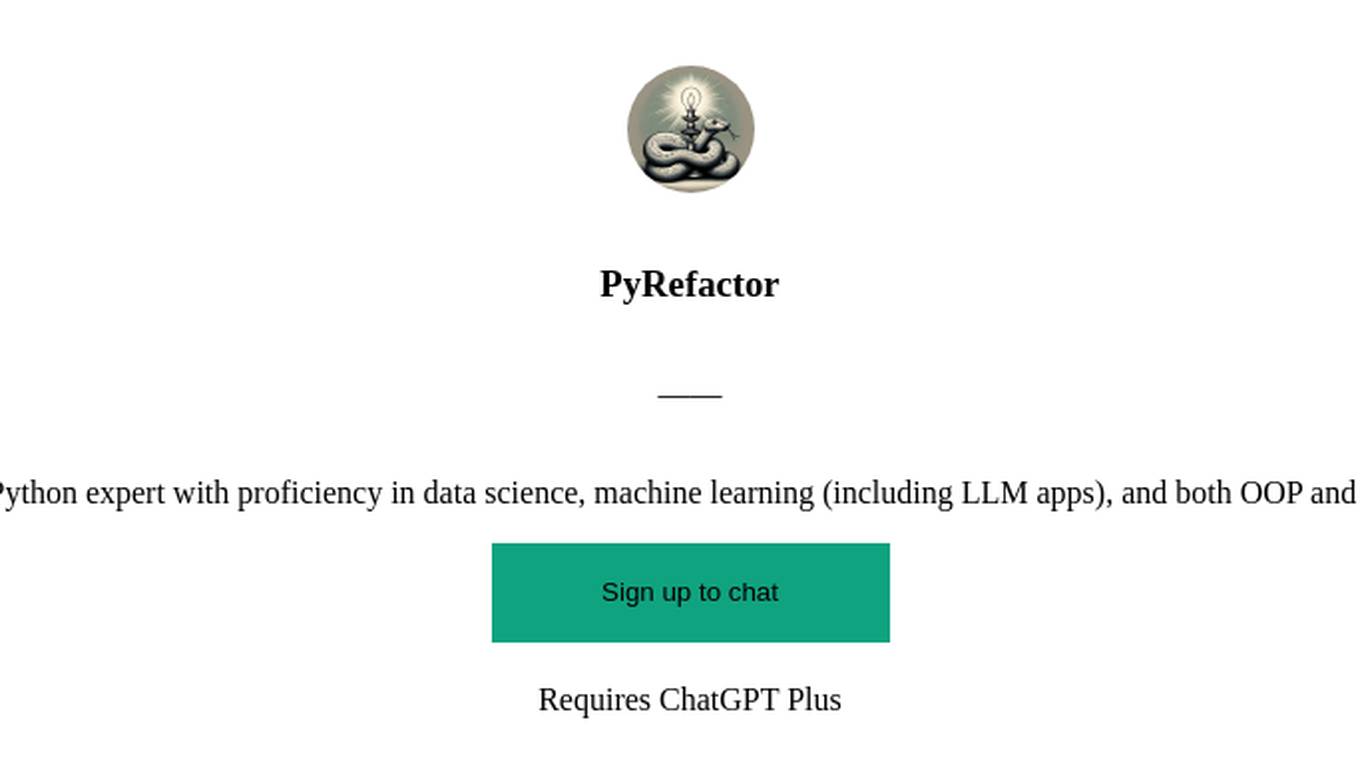
PyRefactor
Refactor python code. Python expert with proficiency in data science, machine learning (including LLM apps), and both OOP and functional programming.
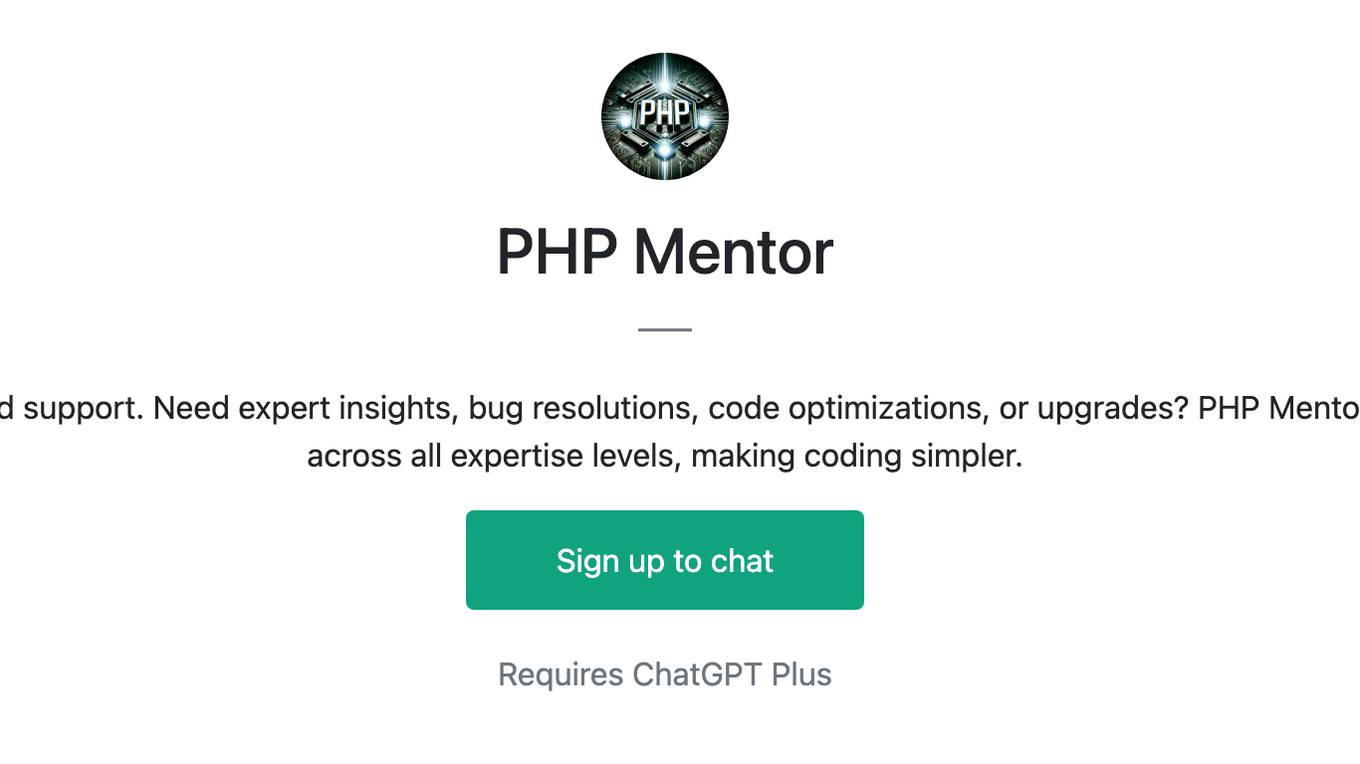
PHP Mentor
Elevate your PHP programming with AI-guided support. Need expert insights, bug resolutions, code optimizations, or upgrades? PHP Mentor delivers custom assistance for developers across all expertise levels, making coding simpler.
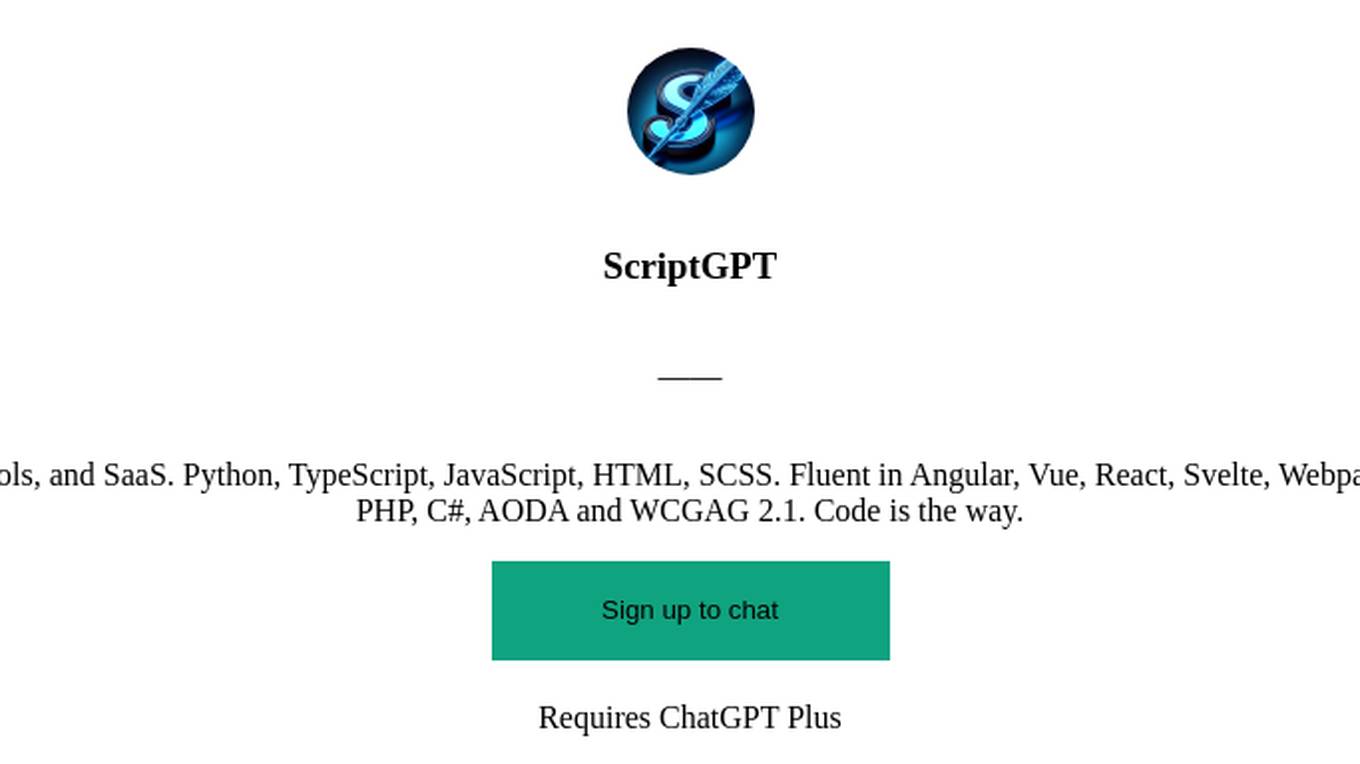
ScriptGPT
Specializing in Web Development, Apps, Dev Tools, and SaaS. Python, TypeScript, JavaScript, HTML, SCSS. Fluent in Angular, Vue, React, Svelte, Webpack, Vite, Vercel, Next, Nuxt, SvelteKit, Node, GO, PHP, C#, AODA and WCGAG 2.1. Code is the way.
